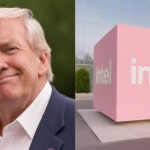With the pandemic tapering off, Pfizer aims to tap into the cancer treatment market with what Bourla describes as "blockbuster" drugs. This move comes as the company seeks to offset its post-Covid revenue decline. In 2022, Pfizer reported record sales of $157 billion, fueled largely by its Covid vaccine and antiviral medication Paxlovid. However, by 2023, sales plummeted by more than half to $71 billion, prompting significant cost-cutting measures, including layoffs across its UK, US, and Irish operations.
Bourla hailed these cost containment efforts as instrumental in the company's positive early 2024 results. He expressed confidence in Pfizer's new strategy, likening the pursuit of oncology treatments to the impactful role the company played in combating Covid-19.
In late 2023, Pfizer made a substantial move into the cancer treatment arena with its $43 billion acquisition of Seagen (formerly Seattle Genetics), a biotechnology firm specializing in monoclonal antibody-based drugs known as antibody-drug conjugates (ADCs). These drugs are engineered to target and destroy tumor cells while minimizing damage to healthy tissues. Seagen's flagship product Adcetris, used in the treatment of lymphoma, drew particular attention.
Padcev, another cancer treatment in Pfizer's portfolio, has shown remarkable growth since its acquisition. Used in bladder cancer therapy, Padcev's sales surged by 164%, signaling Pfizer's effective investment strategy.
Bourla emphasized the company's commitment to developing groundbreaking cancer treatments, promising significant advancements in the coming years. He noted the global fear of cancer and expressed optimism about Pfizer's ability to make substantial progress in cancer treatment over the next decade.
In line with this vision, Pfizer announced plans in January 2024 to introduce at least eight blockbuster cancer drugs by 2030 and double the number of patients benefiting from its innovative therapies compared to 2023.
As Pfizer redirects its resources and expertise toward combating cancer, Bourla's statements underscore the company's determination to make a meaningful impact on the lives of cancer patients worldwide.








